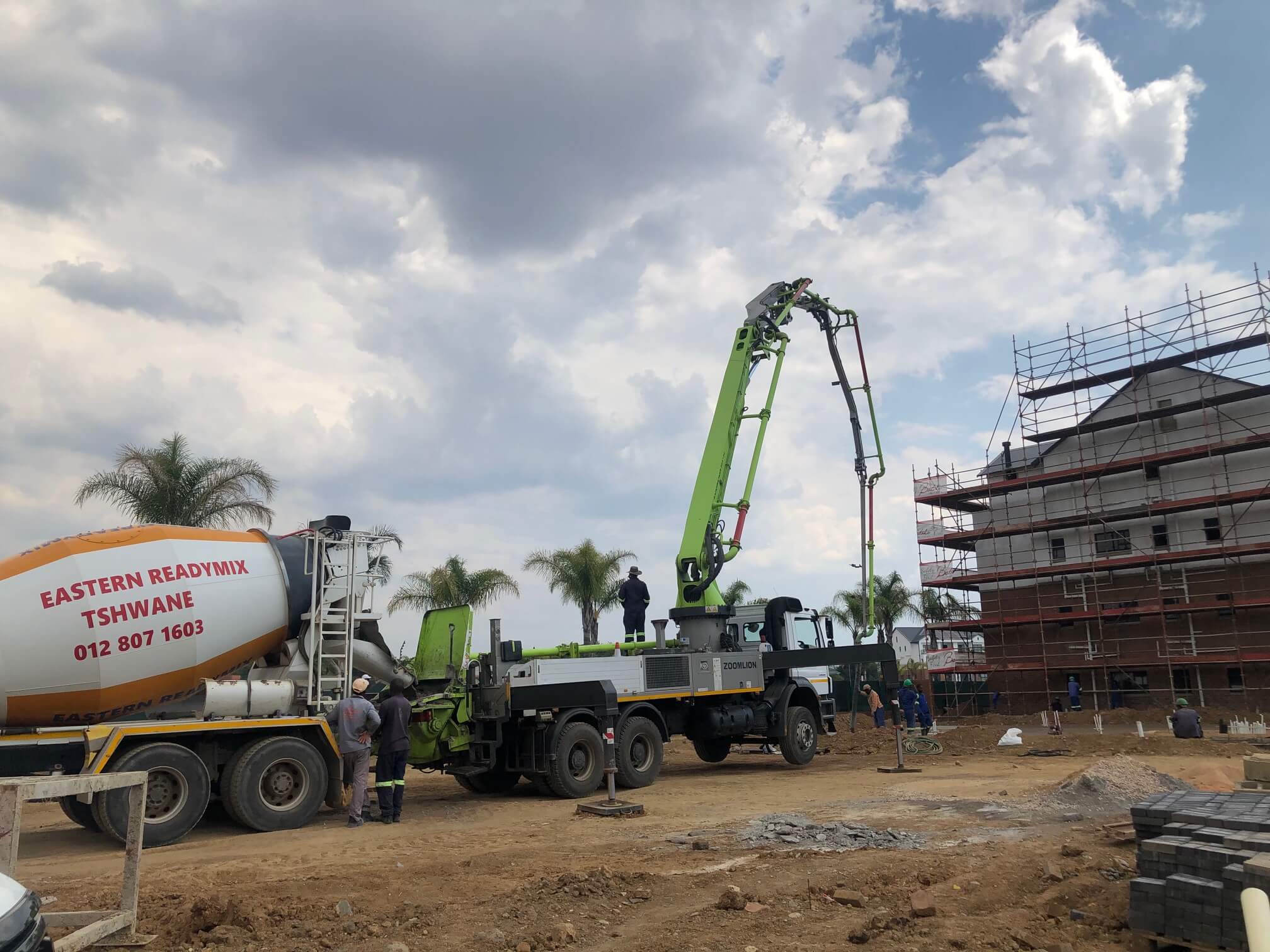Welcome to Eastern Readymix Tshwane

Unbeatable Concrete Ready Mix Cost For High-Quality Materials
EASTERN READYMIX TSHWANE was established in 2020 after the nationwide lockdown when PRETORIA EAST READYMIX bought Eastern Readymix. Our soil crete mix for standard Concrete Tshwane mixes is guaranteed to reach strength in 28 days. The management of EASTERN READYMIX TSHWANE started in the ready-mix business in 2013 and have the number one goal of being your partner in all your building projects!”With extensive experience across several industries, including concrete ready mix cost, we strive to deliver top-notch service and quality products to meet your construction needs, EASTERN READYMIX TSHWANE provides a series of key services relating to ready-mix concrete that meet the exact needs and specifications of our diverse set of clients.
Our effective and efficient concrete ready mix cost solution provides projects with a means facilitating efficient operations, at less of a cost to traditional approaches. Our office is situated in Wapadrand, Pretoria, and we service clients across Pretoria, Centurion, and Bronkhorstspruit. (Pretoria East, Pretoria North, Roodeplaat Centurion, Midrand, Donkerhoek, Rayton, Cullinan, Ekandustria, KwaMhlanga, Bronkhorstspruit, and surrounding areas)
With this in mind, we provide a variety of services that see to the needs of the construction and civil fields, across Gauteng.
At EASTERN READYMIX TSHWANE we have the utmost respect for our customers. We value your time and money and we guarantee timely and good quality service.
Our friendly office personnel are always on standby and ready the help you with any questions or queries.



INTERESTING FACTS ABOUT READYMIX CONCRETE

The Difference between Cement and Concrete
The terms cement and concrete are often incorrectly used interchangeably. Cement is an ingredient of concrete.
Concrete is a mixture of aggregates, cement and water. The most common aggregates used in concrete mixes are sand and gravel or crushed stone.
Concrete Readymix Manufacturers & Suppliers tend to get stronger as they get older through a process called hydration. The water and cement, also known as paste, harden and bind the aggregates. This process continues for years.

Concrete Basics
Basically, concrete is a mixture of paste and aggregates. When this mixture binds together into a hard rock-like mass, it is what we call concrete.
Concrete can be moulded and formed into any shape when it’s just mixed and is strong and durable when it hardens. These qualities are why concrete is used in a variety of structures, such as sidewalks, skyscrapers, houses, bridges, dams and superhighways.
Ready-mix concrete makes it easy to complete building jobs because it decreases the amount of mixing time need on site.
The ratio and mixing of ingredients are crucial when aiming for strong, durable concrete. If the concrete doesn’t have enough paste the result is rough and porous. With too much paste, the concrete is more likely to crack, making it expensive to replace.
Generally, a concrete mixture is by volume about 10 to 15% cement, 60 to 75% aggregates and 15 to 20% water. The remaining 5 to 8% may be made up of trapped air bubbles in the mixture.


The Chemistry of Cement
When combined with water, cement undergoes a chemical reaction called hydration, which allows the paste to harden as it surrounds and binds to the sand and stone aggregates.
The strength of paste depends on the water to cement ratio and the better quality the paste is, the better quality the concrete is. High-quality concrete can be achieved by lowering the water-cement ratio without sacrificing the workability of fresh concrete. Generally, using less water produces a higher quality concrete provided the concrete is properly placed, consolidated and cured.

All about Aggregates
Aggregates make up a majority of the total volume of concrete and need to be chosen carefully. The type and size of the aggregate mixture are determined by the thickness and purpose of the final concrete product. It is essential that aggregates are clean and free from anything that might affect the quality of the concrete.

What about the Water?
Natural water that is drinkable and has no obvious odour or taste is ideal for mixing concrete. As with aggregates, impurities in the mixing water may affect the concrete strength and may also cause efflorescence, volume instability and reduced durability.
